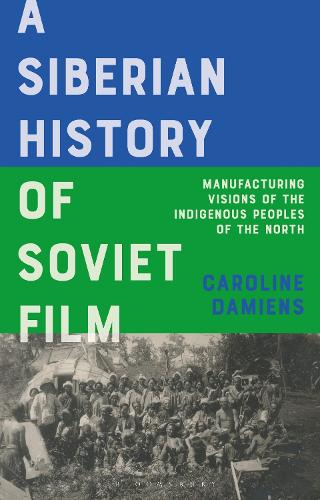
A Siberian History of Soviet Film: Manufacturing Visions of the Indigenous Peoples of the North
(Paperback)
Available Formats
Publishing Details
A Siberian History of Soviet Film: Manufacturing Visions of the Indigenous Peoples of the North
By (Author) Caroline Damiens
Bloomsbury Publishing PLC
Bloomsbury Academic
30th April 2026
United Kingdom
Classifications
Tertiary Education
Non Fiction
Film history, theory or criticism
791.430947
Physical Properties
Paperback
320
Width 138mm, Height 216mm
Description
Winner of the British Association of Film, Television and Screen Studies Best First Monograph Award
In A Siberian History of Soviet Film, Caroline Damiens explores how the depictions of the indigenous 'Peoples of the North' in Soviet cinema and television evolved between 1920 and 1980.
Damiens combines a detailed analysis of key works such as Forest People (1928), Igdenbu (1930), Dersu Uzala (1961 & 1975), Tymanchas Friend (1969) and The Most Beautiful Ships (1972), with primary sources like press articles, archives, and interviews, to reveal how these cinematic portrayals were created and negotiated, providing insight into the concepts of progress and authenticity in the Soviet context. She emphasises the role of indigenous individuals in shaping their cinematic image, both in front of and behind the camera, highlighting the works of lesser-known figures like Suntsai Geonka, Zinaida Pikunova, and Iurii Rytkheu. In doing so, Damiens emphasises the multifaceted nature of film, where interpretations differ based on the perspectives of those involved.
Using a decolonial approach and drawing from extensive archival materials, Damiens prompts a re-evaluation of the Soviet cinematic past and present by centring indigenous voices in the narrative. In doing so, she provides a thorough exploration of the intricate relationship between culture, representation, and identity in Soviet cinema.
Reviews
Damiens highlights the role of indigenous individuals in shaping their cinematic image, emphasizing lesser-known figures. Using a decolonial approach and extensive archival materials, she diligently re-evaluates Soviet cinema by centring indigenous voices, exploring the relationship between culture, representation, and identity. -- BAFTSS Best First Monograph Award judging panel
Author Bio
Caroline Damiens is Associate Professor in film studies at the University of Paris Nanterre, France. She gained her PhD at the National Institute of Oriental Languages and Civilisations, Paris, and was a postdoctoral fellow at the Department of Research and Higher Education at the Quai Branly Museum, Paris.
